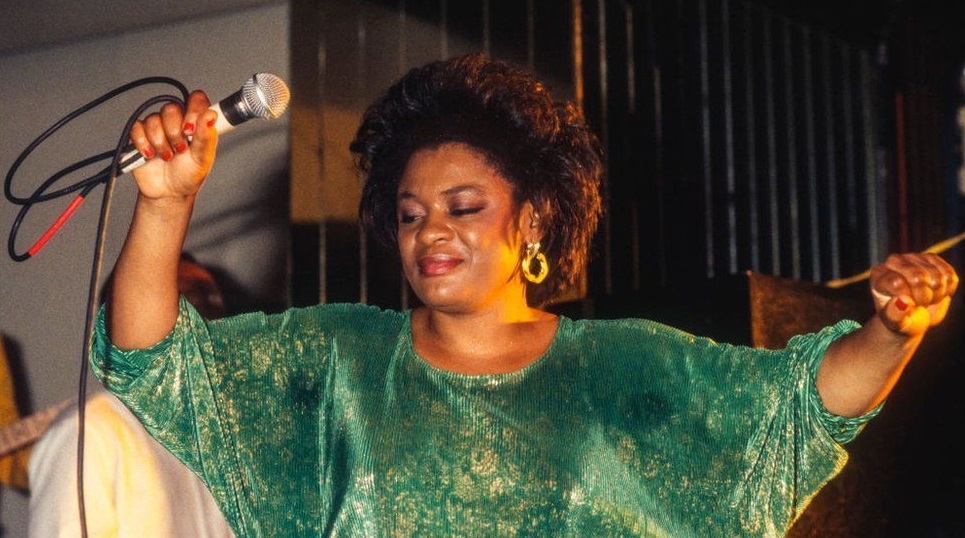Tshala Muana died on December 10, 2022. PHOTO | COURTESY
One of the four top Congolese women who pioneered, revolutionised and excelled at rhumba music, Tshala Muana, is no more.
The gifted singer and dancer, who was 64, succumbed to suspected diabetic complications at a Kinshasa hospital on Friday night, December 10, 2022.
While Abeti Masikini was the trailblazer, as a singer, followed by Mpongo Love, Tshala would later make her debut as a dancer, just like Mbilia Bel, and worked briefly with Abeti, before launching her solo career. Of the four women, only one, Mbilia Bel, is now alive and still active in music, performing and recording. She was in Kenya on the campaign trail before the August 9 General Election, pitching for Raila Odinga’s election.
Early in her career, it took a bold move by Tshala, then a dancer, to venture away from Congo to Cote d’Ivoire in the 1980s on her way to fame and continental stardom. This was a familiar path that even some of the top male musicians such as Kanda Bongoman had followed in the Francophone pull of the time. Abidjan, the Ivorian capital, had become the alluring centre of musical entertainment.
On her death, Tshala has left a rich and memorable discography, including hit songs such as Karibu Yangu, Tshibola, Nasi Nabali, Lwa Touye, Dezo Dezo, Malu, Kapinga, and Kalume.
Popularly known as the “Queen of Mutuashi”, her provocative sexy dance style from the Tshiluba community of the Kasai region in the Democratic Republic of Congo, Tshala released a number of songs that became hits in her country and in East, West and southern Africa.
Her death has once again flung Kinshasa into deep mourning, following the passing on of mercurial veteran saxophonist, band leader and musicians’ rights campaigner Verckys Wazolambongo Mateta in October. The founder of Orchestre Veve and Editions Veve recording label had a string of hits, including the controversial Nakomitunaka in which he asked why godly things are associated with whites and blacks with the devil.
Mamu National
Tshala, who has in recent years after dabbling in politics as a supporter of former President Joseph Kabila and predecessor Laurent Kabila, has also been fondly referred to as Mamu National (Mother of the Nation). It was an unofficial title that she earned for articulating the rights of women, children and the poor in her contributions in the National Parliament.
Her most recent song titled, Ingratitude, kicked up quite some controversy, as she was briefly arrested in November 2020 and detained after it was perceived that she was being critical of current President Felix Tshisekedi.
She had without naming names in the song, seemed to accuse Kabila’s successor of abandoning the man who helped him into power, by forming an alliance with him, hence the title Ingratitude.
Tshala, who has been in poor health in recent years, had been admitted to Hospital du Cinquantenaire, where Kiamuangana also died.
Born Elizabeth Muana Muidikayi in 1958 in Lubumbashi, southern DRC, then known as Elizabethville, she, unlike most of her counterparts who mainly sing in Lingala, recorded most of the songs in her native Tshiluba language, whose traditional nuances she greatly cherished.
She also recorded a few songs in Kiswahili, which is also widely spoken in eastern Congo, in hilarious dialect heavily influenced by local Bantu languages, including Tshiluba and Kikongo.
One of the greatest songs she composed and sang is the highly emotional Cicatrice de a’mour, whose video on the old Urtna TV exchange programme from Abdijan, announced her arrival on the international music scene.
The news of her death was broken by her companion and music producer Claude Mashala, who is also said to be a prominent member of Kabila’s former ruling party.
Tshala had reportedly been battling with diabetes and hypertension and is believed to have suffered cardiac arrest and died in hospital.
“In the wee hours of this morning, the good Lord has decided to take over the National Mamu. May the good God be glorified for all the good times she has put us on this earth. Goodbye, my Mamu,” Mashala broke the news on his Facebook page.
Member of Parliament
Tshala’s political side emerged following the ouster of dictator and long-serving President Mobutu Sese Seko in 1997, when she became a nominated Member of Parliament. Then, she teamed up with Tabu Ley, who also briefly served as an MP and minister for culture for Kinshasa Province in President Kabila’s government.
She did not give up her music career, and would later resume full-time performing and recording while mentoring young, especially female musicians. The most remarkable talent is gospel singer Meje30 (Marie Jose Njiba Mbuyi), who broke away and did some secular songs.
Provocative shows
Kenyan fans had two occasions to watch Tshala perform her provocative shows in Nairobi at the then popular Carnivore Restaurant in 1990 and 1991. The late flamboyant producer Tamukati Ndongala organised her first visit and the second was by veteran music producer Kaluila Simon.
The second born in a family of 10 siblings, the Karibu Yangu hit song maker gained prominence across Africa in the 1980s for her provocative mutuashi dance, in a vibrant gyration for women’s freedom.
Tshala was immensely proud of the sexy mutuashi style, which she defended as an expression of the culture of the people of the Kasai region of DRC. She is now gone forever but her legacy will remain a major contribution to African music.
jaywanyama22@gmail.com




